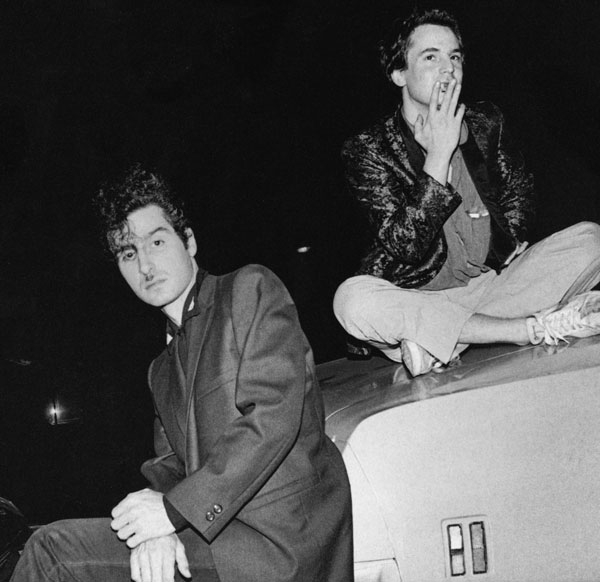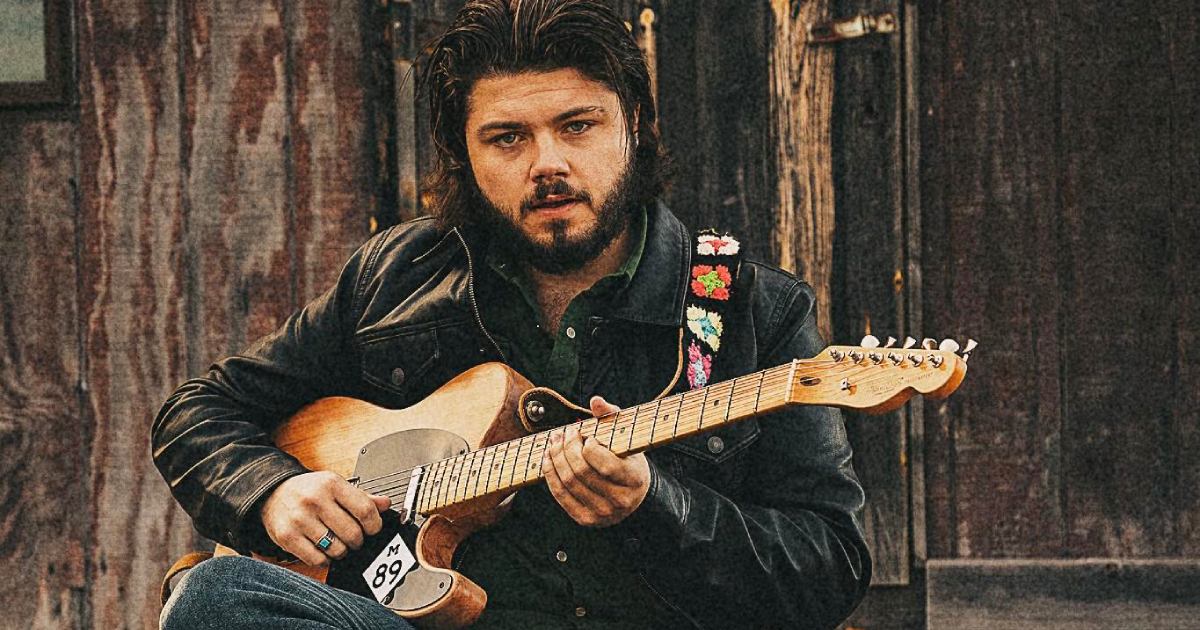Tav Falco & panther burns
ft. Mike Watt & Toby Dammit
Tip Top Deluxe Bar & Grill, Grand Rapids
Oct. 20, 7 p.m.
$20, $15 adv.
tavfalco.com
By the time the 1970s came along, Sun Records and the sounds of the ’50s were being eclipsed by hard, progressive rock. True rock ‘n’ roll, even in its birthplace of Memphis, Tenn., was going underground. That’s where Tav Falco & Panther Burns come into frame.
In 1979, Panther Burns was formed by the flamboyant guitarist/vocalist Gustavo Antonio “Tav” Falco and the now iconic Alex Chilton of Box Tops and Big Star fame. Tav Falco’s Panther Burns became Memphis’ first “art damage” band. The group’s primal brand of rockabilly and blues provided a harsh contrast to the true bluesman and seasoned rockers who swarmed their sonically-rich stomping grounds.
While the late Chilton didn’t stay in the band for long, he was a catalyst in the band’s genesis. Falco, who long ago relocated to Paris, recalls one of his pre-Panther Burns gigs that likely started it all.
“In 1979 I destroyed a guitar on stage with a chainsaw,” recalled Falco. “At that time audiences, especially at the Orpheum Theatre in Memphis, were not accustomed to such industrial destruction and art damage on stage. So it developed into a completely hysterical climax. Alex Chilton was in the audience that night.”
From there, it was only a matter of time before the likeminded Falco and Chilton would cross paths.
“About a month later I was throwing a party at my house across the tracks in the Garden District,” Falco said. “The bass player from this girl group The Clits called Alex up from my house and talked to him on the phone. Alex said, ‘What’s that I hear in the background? I hear somebody playing guitar? I’ve never heard anything sound quite like that.’ She said, ‘Oh, it’s that guy who destroyed the guitar at the Orpheum Theatre, remember?’ He said, ‘I’m coming right over.’
“He came over and we stayed up all night playing music,” Falco added. “Of course, all I could play was some rudimentary blues, but Alex could really play rock ‘n’ roll. I was impressed and we had a lot of fun.”
During their first jam sessions, Falco said he wasn’t aware Chilton had been the lead singer of the Box Tops, a band with the 1967 #1 hit single, “The Letter.” Also, in typical Chilton fashion, he wasn’t bragging about his teenage stardom days. At this point in his career, Chilton was long over his burst of international fame. The alt-rock visionary had become enamored with lo-fi, punk-inspired sounds.
“That first night, I didn’t realize he sang with the Box Tops,” Falco said. “Honestly, I didn’t put the Box Tops together with ‘The Letter.’ I’d heard ‘The Letter,’ but didn’t listen to it much. I didn’t know who Alex was. Over time, I went over to his house, I saw some gold records on the wall and got to know his background.”
This friendship proved to be a period of growth for both songwriters — it also set the path for Falco’s career as a touring musician and artist.
“Alex taught me rock ‘n’ roll and I turned him on to some blues,” Falco said. “Alex said, ‘I know a drummer. If you can come up with a name let’s start this band and I’ll play with you for a while.’”
Since those early days in Memphis, the band has shifted through many lineups, but Tav Falco & Panther Burns is still thriving. The current band, featuring bassist Mike Watt and drummer Toby Dammit, performs at the Tip Top Deluxe Bar & Grill on Tuesday, Oct. 20. And, for those who attend the Grand Rapids show, they’ll see Falco’s refined artistic vision hasn’t waned.
“This is the Whistle Blower Tour, it pays homage to our new album, Command Performance,” Falco said. “There’s a song in it called ‘Whistle Blower.’ That’s what this tour, essentially, is all about. I put together a little manifesto for the tour, it goes: ‘Equal parts primal, early rock ‘n’ roll, deviant hell-country blues and avant-garde art, Tav Falco & Panther Burns are ram shackle, raw and unholy. It’s not just music, but a state of mind.’”
Over the past 36 years, Falco has kept busy beyond his dedication to rock ‘n’ roll. He recently premiered a feature length art-house film called Urania Descending. This month he releases his first book of photography An Iconography of Chance: 99 Photographs of the Evanescent South. He is incessantly creating and developing.
“Panther Burns still has this unbridled sense of abandon in everything we do,” he said. “The fact that we have played for a while doesn’t mean we’re not able to expand our vision. We didn’t stay in one place. We have evolved since our first show in 1979 where we played eight songs: Four rockabilly songs, three blues tunes and one tango. You can magnify that concept for the show you’re going to see in Grand Rapids.”





